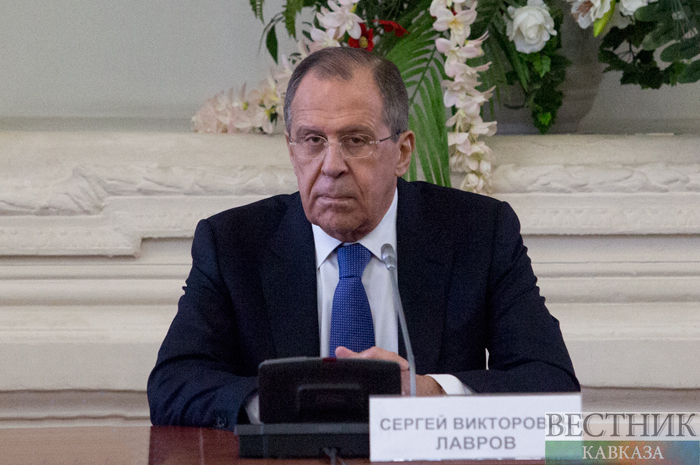For centuries Russia has acted as a balancing power in Europe and in global processes, the Russian Foreign Minister Sergei Lavrov said during his traditional speech at the Diplomatic Academy of the Russian Foreign Ministry.
"Today Russia speaks out for key positions in the formation of a new architecture of international relations. We have a lot of like-minded people here, especially our partners in the Eurasian Economic Union, CSTO, CIS, BRICS and SCO," the correspondent of Vestnik Kavkaza cited Lavrov as saying.
The Russian Foreign Minister paid special attention to the interaction between Russia and China, which has "reached its highest level in the history of bilateral relations." "The Russia-India-China (RIC) format is also in demand. There will be the next Russia, India and China ministerial meeting in our country in the near future," the minister reminded.
"We are not fighting against anyone, but for the solution of international problems on an equitable basis, which may be the only reliable foundation to improve the situation in our troubled world," he stressed.

"And in this context we regret the recent principles of the EU's relations with Russia, especially the EU's calls to introduce anti-Russian sanctions," Lavrov noted.
According to him, against this background Russia's task is to continue to disseminate an intellectual approach, political momentum, to strengthen positive influence on the formation of a new world order.
He noted that this partnership should be aimed at meeting the challenges of our time, first of all international terrorism. "The terrible attacks in Brussels are more confirmation of the validity of President Putin's initiative of forming a broad international anti-terrorist front," Lavrov said.
The diplomat also said that one shouldn't believe the statistics, which indicate that the world is in its worst condition in the last 50 or 100 years.

The Russian Foreign Minister pointed out that these conditions require a clear and uncomplicated approach. "Primitive black-and-white approaches are dangerous, they do not reflect trends in international development," he stressed.
The Russian Foreign Minister cited the German politician Hans-Dietrich Genscher: "The 21st century will be the first global century in the history of mankind that political and economic power centers declare themselves and increase their effectiveness. This requires global cooperation and recognition of equality of rights of all the subjects of the new world community. The idea of the dominance of a particular region would call the stability of the new world into question."
In this regard, the diplomat also mentioned Russia's attitude towards the US and America's role in the global process. "In a recent interview in the Atlantic, US President President Barack Obama insisted that the agenda of any important multilateral forum is not determined without US participation. But it could not be otherwise. US participation in the development of common approaches was aimed at ensuring international security and sustainable development, not at meeting their own interests," the head of the Foreign Ministry explained, adding that the cogency of this thesis has been demonstrated by the events of recent decades more than once.

"We are convinced that approaches are needed today aimed at the future, based on strategic understanding of global processes and that realism in politics is in demand. Russia is the successor to the Soviet Union and in this capacity, as a successor of traditions of the pre-Soviet era of our country’s development, we clearly understand that messianism and attempts to impose one's own development models and values on other peoples are counterproductive," the minister said.
The situation that has developed today in the Middle East and North Africa demonstrates the true nature of this destructive ideology, according to Lavrov.
Russia opposes these negative trends. "Some Western leaders accuse Russia of unpredictability, the destruction of the international system. But if you understand the global architecture to be based on international law, the UN's role, and in European affairs on the Helsinki Final Principles, then Russia is the guardian of this order, while our partners - the United States - acted as destroyers of the order in Europe and NATO, when Yugoslavia was bombed, Iraq was invaded, the Libyan state was broken," the head of the Russian Foreign Ministry recalled.
"In the age of information technology, the line between politics and propaganda blurs, especially if a victory in the next election cycle becomes the key objective of governments," he said.








